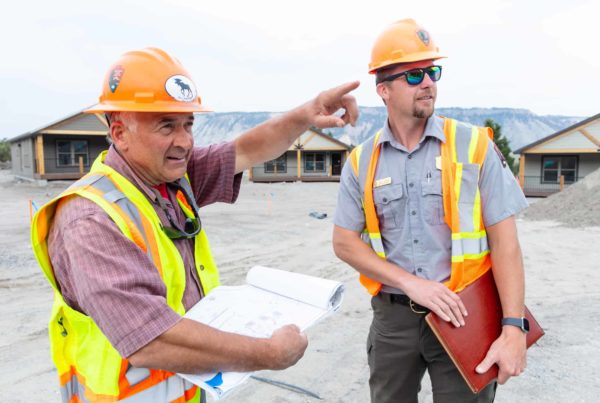Dealing with a contractor requires some understanding of what they do and who they are as persons. To understand your contractor, you have to understand that contracting is a very difficult, risky and stressful undertaking. Contractors, particularly small contractors, are very sensitive to cash flow issues. The contractor is expected to be able to anticipate how the project will progress, anticipate problems and produce a quality product on time. Hopefully, he/she makes a profit and gets paid on a timely basis. Time is the essence of their activities and time can determine whether the project is profitable or not.
Some contractors have marketing persons who are gregarious and want to please. Sometimes their knowledge of the effort required for the job is less than desirable. They may promise results that are not practical or even possible. Beware of these individuals. They may not be around when the work is being completed. Any verbal agreements or concessions should be included in the written contract.
Contractors are generally persons of action and may not have good people skills. They plan their projects, manage the workforce, control quality and push to control the timing of the job. Many problems can develop in this process, such as workforce problems, delivery of material problems, and changes which disrupt a schedule. As the frequency of these problems mount, the temperament of a contractor may deteriorate. Any efforts that an owner can make to facilitate the resolution of problems will enhance the project.
As problems develop, dealing with each other can be more and more difficult. The likelihood of a satisfactory resolution to the problems will depend upon the owner, contractor, his/her expectations and their own temperaments. Once owner/contractor communication has broken down, the problems will continue to mount. Open, friendly communication and planning are the keys to a successful project. Following a structured plan, bid process and contractor selection will go a long way to ensuring a successful project. It is imperative that the owner manage this process. If he/she is not capable of managing it, they should hire their own knowledgeable representative.
The best way to guarantee problems during the course of a project is when both parties to a contract do not to have a clear understanding of what work is being done, the desired result and the costs involved. This is usually caused by contracts that are not in writing, do not have clear scopes of work and have not been well thought out. A well thought out written contract can go a long way to minimizing misunderstandings.
The agreement between the parties must keep the risks of both the owner and contractor in mind. Once a project gets started on the wrong path, it will be very difficult or impossible to get it back on track. You will then have several difficult persons involved.
Planning is the first step in any construction project. All projects start with a problem that must be resolved properly. The complexities of the problems vary from a simple painting project to a water intrusion problem requiring a multi-disciplinary approach.
Once the best solution to the problem is identified, a scope of work is developed and bids are solicited. Without a clear picture of the problem and a well thought out remedy, the project should not be started. Using contractor proposals in an attempt to identify the solution without a clearly defined scope of work can be a serious mistake in the process. This path usually leads to confusion, a less than satisfactory result and possibly legal complications.
Preparing a bid requires a clear picture of the desired result, as well as the means that will be needed to get to that result. The bid process generally seeks to determine the best contractor to perform the desired work for the most competitive dollar amount. The bidder with the least dollar amount bid is not necessarily the best one for the project. The bid document should answer most of the questions for the contractor and owner.
Many more details regarding payment schedules, legal stipulations and the method of resolving disagreements should be covered in the contract once you have selected a contractor. Careful attention to a clear scope of work will make the contract preparation phase much easier. The final scope of work should be incorporated into the contract, either directly or by reference. Consult your legal advisor or use standard contract forms.
Once you receive several bids from experienced contractors, it is time to analyze the bids. A brief discussion with the representatives of the contractors with the best proposals is recommended to ensure that they understand the project and the scope. As always, check references and insurance if you haven’t already done so. On large projects, you should determine if the contractors are bondable or check them out on a financial reporting service such as Dun and Bradstreet.
Congratulations, you have made a careful selection of the best contractor to perform the work on your project. Unfortunately, no amount of planning can eliminate all of the problems and misunderstandings involved in any construction project. However, good planning in the beginning will keep surprises to a minimum and preclude the need to work with a difficult contractor.
By: Gary J. Caruso, P.E. R.S. Criterium-Caruso Engineers. Criterium-Caruso Engineers provides building consulting/inspection services in Alpharetta, GA for a wide variety of commercial and residential clients. www.criterium-caruso.com

